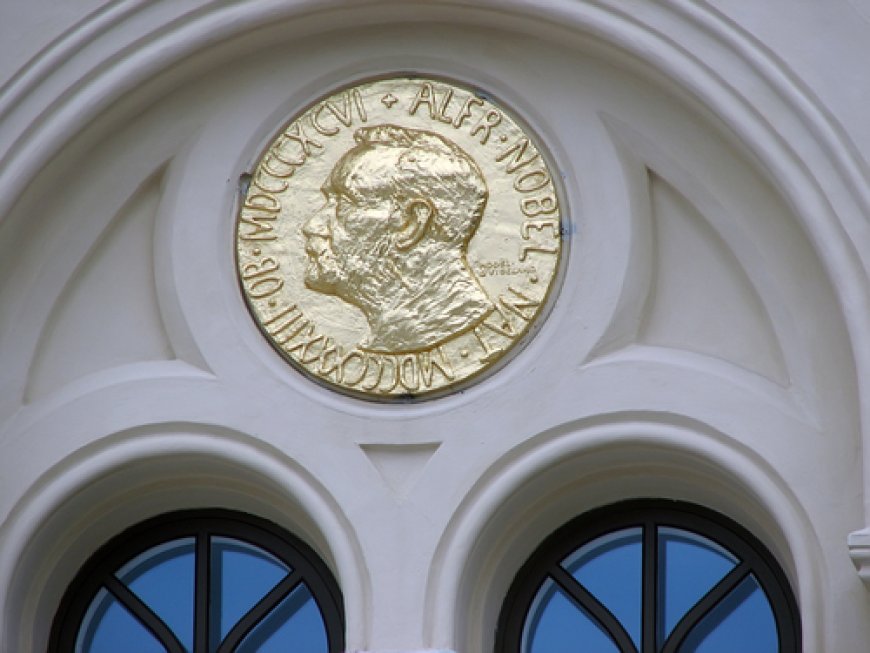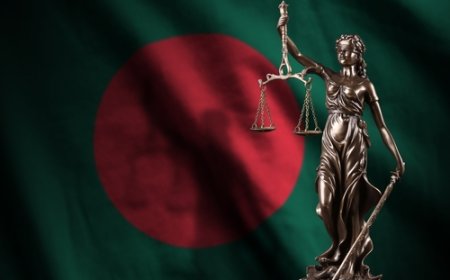The Nobel, the Peacemaker, and the Paradox
When Alfred Nobel dreamed of a world united by fraternity, he did not imagine it would be governed by press releases. Yet that is what the award has become: a yearly exercise in reputation management, not reconciliation.

Few honours in human history were ever meant to shine as brightly as the Nobel Peace Prize, and few have flickered as often in moral confusion. When Alfred Nobel, the inventor of dynamite, decided to immortalize his conscience by rewarding “the fraternity of nations” and “the abolition or reduction of standing armies,” he probably imagined something far nobler than a parade of politicians, diplomats, and power-brokers receiving applause for promises that never matured into peace.
What was designed to celebrate the courage to end wars has gradually become a pageant that flatters those who wage them.
The irony would not be lost on any viewer of The Peacemaker --- the absurdly violent superhero who insists he will kill anyone, literally anyone, to achieve peace. The series is meant to mock hypocrisy, yet it has become an unintended metaphor for the Nobel itself: an award that preaches virtue while embracing contradiction.
The more the world burns, the more prestigious the peace prize seems to become. Somewhere, Alfred Nobel is probably spinning faster than the centrifuges his dynamite once powered.
The problem is not occasional error but structural design. Unlike its scientific siblings, the Peace Prize rests entirely on subjective judgment. It is administered by a five-member committee chosen by the Norwegian Parliament, which reflects the political composition of Norway rather than the diversity of global conscience. Though the rules forbid active politicians from serving, most members are retired ones.
Transparency is minimal. The committee’s deliberations remain sealed for half a century, which ensures that public scrutiny always arrives when the principals are safely deceased.
This framework, forged in Nordic good faith, has gradually become a trap of political comfort and moral convenience.
As a result, the Nobel Peace Prize has turned into a mirror that reflects the illusions of its time. There were moments when it caught the light -- Martin Luther King Jr., Mother Teresa, Nelson Mandela -- but those moments are exceptions, not the pattern. More often, the award has travelled in the company of irony. In 1994, it was given to Shimon Peres, who as Israel’s defence minister helped build a nuclear arsenal and presided over the Qana massacre that killed over a hundred Lebanese civilians.
The prize turned into a diplomatic indulgence for those who spoke the language of peace while practising the logic of power. It was less about ending conflict and more about recognizing “our kind of peacemaker.”
In 2009, the committee achieved self-parody by awarding the prize to Barack Obama nine months after he took office. The justification: “for extraordinary efforts to strengthen international diplomacy,” might have impressed a speechwriter but not history. Within a few years, drone warfare expanded across seven nations, from Pakistan to Yemen. Obama later admitted he was unsure why he had received it. So was everyone else. Geir Lundestad, who then directed the Nobel Institute, eventually confessed regret, admitting that the award damaged the committee’s reputation for independence. Yet the gesture captured the mood of the age: peace was no longer an achievement but a brand.
The parade of contradictions did not stop there. Henry Kissinger was honoured for ending the Vietnam War even as his policies ignited others in Latin America and Southeast Asia. Aung San Suu Kyi was once the embodiment of non-violent resistance, only to remain silent when her government persecuted the Rohingya. The European Union was hailed as a model of reconciliation in 2012 while its member states sold weapons to regions torn apart by the very conflicts they claimed to lament. And in 2019, Ethiopia’s Abiy Ahmed was praised for peacemaking with Eritrea, only for his government to plunge into the Tigray war the following year. The Nobel Committee has developed an impressive talent for mistaking potential for principle.
Even its omissions are eloquent. Mahatma Gandhi, nominated five times, was never awarded. The year he was assassinated, the committee left the prize vacant. Its later apology came through the Dalai Lama, who received it in Gandhi’s “spirit.” That gesture was noble, yet it only underlined the original failure. The most peaceful man of the 20th century was unfit for a peace prize because he lacked a lobby and a Western accent.
The Nobel’s contradictions have now entered the realm of satire. The 2025 Peace Prize went to Venezuelan opposition leader María Corina Machado, a figure whose biography could easily have been scripted by The Peacemaker’s writers’ room. She is brave, no doubt, but also divisive. Twice accused of treason, once for backing a coup against Hugo Chávez and later for seeking foreign intervention, she has been a vocal supporter of Donald Trump’s hardline policies and even signed a cooperation pact with Israel’s Likud Party.
Critics recall her declaration that “the struggle of Venezuela is the struggle of Israel,” a statement that sounds heroic until one remembers what “struggle” has meant in Gaza.
Her award provoked an almost comic sequence of reactions. Trump, who has long craved the prize himself, declared that the Nobel Committee “placed politics over peace.” His aides insisted he had ended more wars than any living man, while his daughter-in-law announced on television that “in our hearts, he is already the Nobel Peace Prize winner.” Machado graciously dedicated her prize to him, calling him the real peacemaker. Even Vladimir Putin, watching from Moscow, expressed sympathy, observing that “some people have won the Nobel without doing anything for peace.” '
When Putin becomes the moral voice in the room, the institution has a problem.
Yet the Machado episode reveals more than the absurdity of individuals. It exposes the deeper pathology of Western moral geography. Over two-thirds of Nobel Peace laureates are from Europe and North America. Africa, Asia, and Latin America share the remaining third.
The award’s moral compass consistently points toward Oslo, London, or Washington. Peace, apparently, must speak English and oppose the correct enemies. The suffering of Gaza, Yemen, or Sudan rarely enters the shortlist, not because their people lack courage, but because their stories unsettle the political comfort zones of those who judge from afar.
The Nobel Peace Prize has thus become a stage where the world’s self-proclaimed peacemakers compete for applause. It is not entirely different from The Peacemaker’s central joke: a man convinced that slaughter is the price of harmony. The modern Nobel often honours the same paradox -- leaders who claim to build peace by means that destroy it. One cannot help but wonder if the committee is secretly binge-watching the series for inspiration.
Even the number of American presidents receiving the prize -- four so far -- tells a story. Theodore Roosevelt in 1906, Woodrow Wilson in 1919, Jimmy Carter in 2002, and Barack Obama in 2009. Roosevelt and Wilson were rewarded only after the treaties were signed. Obama received it before his first treaty.
The evolution from peace accomplished to peace promised to peace imagined is a perfect allegory for the Nobel’s drift into symbolism.
If The Peacemaker ever runs for office, the committee might be tempted to nominate him for his “unwavering dedication to global tranquility, regardless of collateral damage.”
Yet beneath the satire lies a serious question: can the Nobel Peace Prize reclaim its moral legitimacy? Perhaps it can, but not without rethinking its core assumptions. It must widen its lens beyond Western diplomacy and include those who build peace without publicity -- community mediators, activists, doctors, teachers, and journalists who risk their lives to hold truth above propaganda. It must bring transparency to its process, include voices from the Global South, and abandon the addiction to political theatre.
Peace is not a campaign promise or a photo opportunity. It is the slow, painful work of justice, forgiveness, and reconstruction. When Alfred Nobel dreamed of a world united by fraternity, he did not imagine it would be governed by press releases. Yet that is what the award has become: a yearly exercise in reputation management, not reconciliation.
H. M. Nazmul Alam is an Academic, Journalist, and Political Analyst based in Dhaka, Bangladesh. Currently he is teaching at IUBAT. He can be reached at [email protected].
What's Your Reaction?











































































